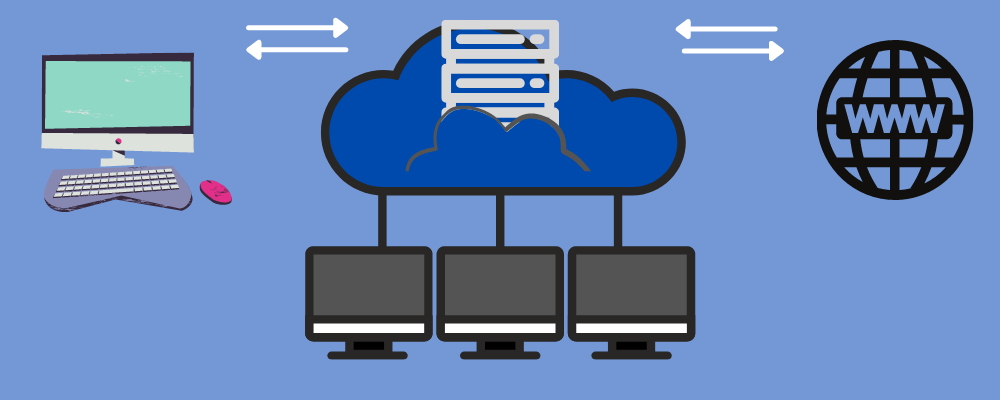
How ISP Proxies Work
Proxies work as intermediaries between internet users and the target websites they’re accessing. The most popular types of proxies are residential and datacenter. Each of these types has different features that can be helpful in various scenarios. However, some cases require a combination of residential and datacenter proxy features, and this is where ISP proxies become useful.
ISP proxies are static residential proxies that combine the best features of both residential and datacenter IP addresses. These proxies can be used in web scraping when gathering data from websites with specific anti-bot technologies, also when targeting search engines, or monitoring social media activities.
Let’s take a deeper look at static residential proxies and their features to explain how ISP proxies work.
What Are ISP Proxies
Static residential proxies originate from data centers, but they’re officially assigned by an Internet Service Provider (ISP). This means that ISP proxies combine the speed of datacenter IP addresses and the level of anonymity of residential proxies.
To better understand how ISP proxies work, let’s look into the differences between datacenter and residential proxies.
Datacenter proxies come from data centers around the world. These IP addresses are simple in their design, but they can also be easily recognized as coming from datacenters. These IP addresses are not organic and don’t resemble the IP addresses of regular internet users. However, datacenter IPs are very fast and stable, so they’re often used for targets that require quick proxies and a stable internet connection.
Residential IPs are assigned to residential home addresses by an Internet Service Provider (ISP). These are organic IP addresses, and that’s how the target websites see them. If a website has robust anti-scraping mechanisms, residential proxies can help bypass them. However, residential IP addresses are slower and cannot ensure as much stability as datacenter IPs.
Static residential proxies combine the best of datacenter and residential proxies, meaning they have the speed of the former and the robustness of the latter.
Static Residential Proxy Features
ISP proxies have a number of features. Here are the main ones:
Rotation
As the name suggests, static residential proxies offer to keep the same IP address for as long as the user requires. While residential proxies are always rotating, as nobody can ensure that one residential IP address stays available for a fixed period of time, ISP proxies can stay stable for as long as the user requires.
Some specific tasks require static IP addresses, as rotating them may flag the IP addresses and get them banned.
Security
Just like any other proxies, ISP proxies shield the original IP address of the user. IP addresses contain various sensitive information such as location or device type, so using a proxy, this information is secure.
ISP proxies resemble genuine internet user IP addresses. This means that connecting to the internet via a static residential proxy is unlikely to trigger anti-bot mechanisms and get the IP address blocked.
Speed
Static residential proxies feature the speed of datacenter proxies. This means that tasks that require quick proxies will be done much faster than with residential IP addresses. A stable ISP proxy internet connection can also ensure that jobs don’t get constantly interrupted.
Locations
ISP proxies can help users shield their original proxy location and bypass geo-location restrictions. Data centers have limited locations, this means that ISP proxies won’t be able to support as many geo-locations as residential IP addresses. However, ISP proxies can still shield the original location of the user’s IP address.
ISP Proxy Use Cases
Static residential proxies have various use cases, but the main ones are web scraping, SEO monitoring, and ad verification.
Web Scraping
Web scraping means extracting data from the web. Companies and individuals gather large amounts of data from the web in order to analyze it. Web scrapers are tools that enable web data extraction. For them to work properly, scrapers require proxies. Without proxies, scrapers would get blocked without getting a chance to return any web data.
SEO Monitoring
SEO monitoring means constantly monitoring search engine result pages. Digital marketing agencies and individuals do it to monitor competitor performance, track keywords, and find opportunities to rank higher on search engines. ISP proxies help scrape data from search engines, which typically have robust anti-scraping mechanisms in place. They also allow accessing information without geographical restrictions.
Ad Verification
Marketing teams often need to check if their ads are displayed properly. To do that, companies need to scan many different websites in various locations. This helps them ensure their ads are displayed to the right audience, on the right websites, and adhering to the campaign standards. ISP proxies can help do this task quickly and smoothly. Static residential proxies can reach target sites without triggering anti-bot mechanisms and return information quickly.
Conclusion
ISP or static residential proxies are IP addresses that combine the best of datacenter and residential proxies. ISP proxies originate from datacenters, but they’re assigned by internet service providers. This means that static residential proxies have the speed of datacenter IPs but appear as any regular residential IP addresses to the target sites.
Unlike residential proxies, ISP proxies can be static. This means that users can keep the same IP address for as long as they need instead of having it rotate with every request sent. This feature may be especially helpful in specific use cases, such as when targeting search engines.
Static residential proxies are mainly used for web scraping, SEO monitoring, and ad verification. These tasks require high speed and stability while remaining seen as regular internet users, which ISP proxies can provide.
With a solid foundation in technology, backed by a BIT degree, Lucas Noah has carved a niche for himself in the world of content creation and digital storytelling. Currently lending his expertise to Creative Outrank LLC and Oceana Express LLC, Lucas has become a... Read more